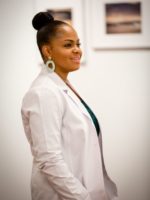
What Racism in Medicine Takes from Us

The best $160 I ever spent: A session with a Black therapist





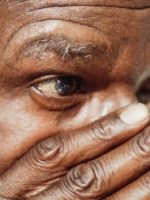
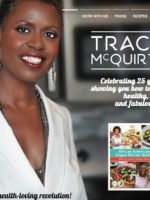

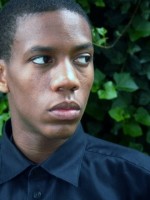

Have you, like so many black parents and
helping professionals, been wondering what impact
these killings of our brothers and sisters are having
on us and our children?
It affects their health, both
emotional and physical. It’s no coincidence that our
communities have disproportionate levels of heart
disease, hypertension, diabetes and addictions. But
when you see the statistics, it is startling.
A report published in the British medical journal,
The Lancet, validates the negative impact of police
killings of unarmed blacks on black people in the
states in which they happened. The inter-
national response to George Floyd’s death shows
that there has been a measurable impact around
the world. It is validating to realize that people
all over the world have been touched by what
has been going on here in the States.
The mental health of white Americans was not
similarly affected by killings of unarmed blacks,
the researchers found. Nor were negative health
effects associated with police killings of unarmed
white Americans or armed black Americans.
The study, which looked at survey data and
examined a database of police killings, noted that
white Americans were not affected similarly.
They also found that killings of armed black
Americans or unarmed white people did not
seem to generate negative health effects.
While we are seeing the increase in violent crime
with the emergence of the pandemic, data tracking
of police killings of blacks found no correlation with
local crime rates. It is more likely that a firearm
and implicit bias don’t belong together but anti-
racism training and more progressive policing
methods do.
M. Scott Peck was a theologian and psychiatrist whose
words over three decades ago seemed applicable to a
tiny slice of America. Now, those same words outline
clearly a sizable chunk of our country and the
psychological deficiencies that fit the descriptions
he gave.
At the root of almost all conflict – whether between international
Said by a therapist after more than 25 years of mediating, training
governments or between intimate partners – is a Lie
and transforming communication between conflicting parties.
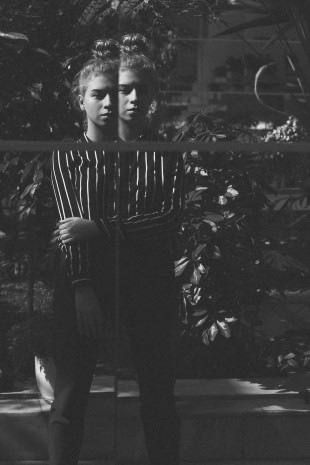
Anger, hostility, suspicion, confusion, denial, jealousy -all of these emotions are the byproducts of lies. It is estimated by psychologist Gerald Jellison, Ph.D., formerly of the University of Southern
California, that the average person may lie about 200 times a day.
These are not intentional deceptions, but more likely intended to
empathize with and support friends and family members or to avoid
conflict or to temper embarrassing situations. Others say that the
average person lies about 11 times a week, but when one looks at
the lies told most often, it moves the probability back towards 200
times per day.
For example, the most frequently told lie, is when
a person says, “I’m on the way” or when they text that they’re stuck
in traffic or when they say they “don’t mind” something that you’ve
asked of them. Lies can be small, and harmless – even beneficial, but
lies can take down a democracy when they undercut the rule of law
or when they incite the taking of another’s life.
Reporters watched in confusion, when our former president, the
person later dubbed “Liar-in-chief” started his reign off with a verifiable
lie: that the crowd at his inauguration “looked like a million and a half people” and “was the largest crowd to attend any inauguration anywhere in the world”. Fact checkers noted that the subway usage that day was less than previous inaugurations. Pictures show that the Mall from the
Capitol to the Washington Monument showed comparatively sparse attendance.
It was at that point that we were introduced to the term “alternative
facts” by that president’s senior adviser, Kellyanne Conway. This concept of “alternative facts” is a head spinner. It delivers the visceral impact of having your reality flipped and the experience of truth shoved down your throat. It’s that feeling, exactly, that many of us feel, when we know we’re hearing a lie. Sometimes it’s a little lie, so sometimes it’s a little twinge that we barely notice. Other times, it’s a big LIE and it’s like a punch in the stomach. We double over, metaphorically, with a feeling of
confusion and disbelief in our eyes.
That was our introduction into the Age of the Lie. That harsh, if not
shocking, remaking of the facts into something that one insecure
person needed to hear in order to tolerate their reality, pulled out
all the stops on lying – on a countrywide stage. And like a bad infection,
it has spread. Governors from Texas to Florida, Trump’s attorney general
and other cabinet level officials began crafting whopping lies, to serve
purposes that we are still trying to understand.
How do lies impact you?
What does it mean to you when someone lies? When you overhear a
good friend lying about you? When your husband comes home late
with an excuse that doesn’t bear any resemblance to the truth? When
you know that a competitor at work had purposely misrepresented
your contribution to a shared project? The first thing you feel is that
punch, right? Then what? You start going over everything you’ve been
told, looking for little signs that you may have missed. You start question-
ing yourself, doubting your perceptions. Depending on your own
experiences, perhaps as a child, you could even lapse into self-blaming.
Your distress may unearth doubts about previously unconcerning social
exchanges. Yes. You’ll recall that time that person jumped off the phone
quickly when you entered the room or the time they didn’t really
answer a question that you asked them. All of a sudden, your security
net started to unravel. All because of a lie that probably has nothing to
do with you.
Reality check #1: People do what they do, not to hurt you,
but to protect themselves.
How does a lie hurt ? Is it that it prevents you from trusting the other
person? Does it keep moving the marker so that you don’t know what’s
real and what’s not? Does it signal that the liar is a foe and may have
negative intentions? Is that why they can’t tell you the truth? Whatever
it is, we know that the truth grounds us. It attaches us securely to a
familiar environment, to stable people and reliable expectations that assure us of a place and surroundings that help us and our children remain safe.
The truth, is an essential component of a happy life.
Since 2016, the United States has experienced gutting of our major
institutions, political behavior that deserves a spanking at the polls,
national indifference to the welfare of the most vulnerable and an under-
cutting of almost everything that we knew to be true.
There’s a good side to this, as there is to any tragedy. It captures
our attention. We have to think through our positions, plan how
we are going to improve the result and commit to being agents of change. It pulls us together.
The assumptions under which we operate have been exposed and
demand our examination and refinement. We’ve had to think of
alternatives to the way we live. We have to prepare for changes
in our expectations. We have to focus on what’s really important
and do what we have to do to make that happen.
The Pandemic has made us stay home, sit still and look at the facts.
People are reevaluating their jobs and the assumptions under which
they have been operating. They’re trying to make sense of their lives.
We’ve had to get real with life, with each other and with the planet.
If we do this right, and live up to our potential as equal partners
in stewardship over the earth, we’ll come out of this stronger,
truly secure and able to usher in The Age of Love.